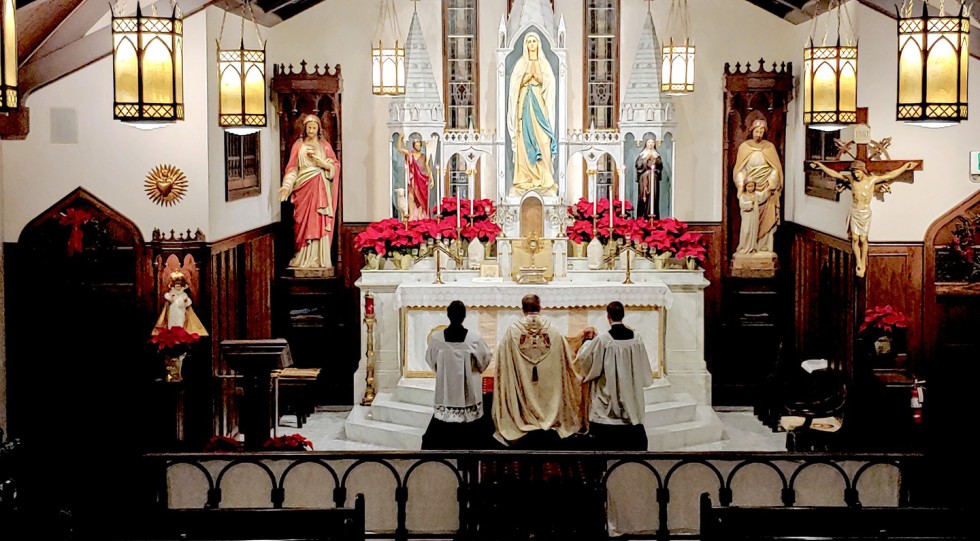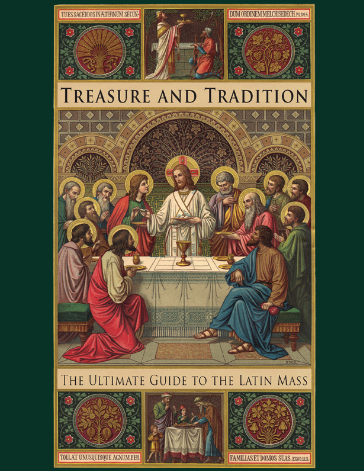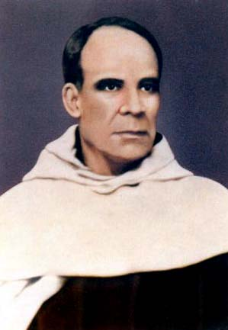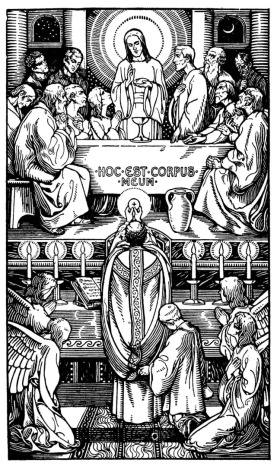
Pope St. Pius V: "...in virtue of Our Apostolic authority, We grant and concede in perpetuity that, for the chanting or reading of the Mass in any church whatsoever, this Missal is hereafter to be followed absolutely, without any scruple of conscience or fear of incurring any penalty, judgment, or censure, and may freely and lawfully be used." —Quo Primum
Anonymous: "The Latin Mass does not cause divisions, but it does reveal them."
Pope Bendict XIV: “What was sacred for prior generations, remains sacred and great for us as well, and cannot be suddenly prohibited altogether or even judged harmful.”
Will Durant: "The sanity of the individual lies in the continuity of his memory, the sanity of a group lies in the continuity of its traditions."
Roger Scruton: "In discussing tradition, we are not discussing arbitrary rules and conventions. We are discussing answers that have been discovered to enduring questions."
Gustav Mahler: "Tradition is not the worship of ashes, but the preservation of fire."
Watch the Mass of the Ages Trilogy
The Traditional Latin Mass
We recommend Treasure and Tradition by Lisa Bergman for learning and understanding the Traditional Latin Mass.
Find out more information and how to order here.
Learn how to participate in the Holy Mass at the highest level. Bd. Francis Palau, OCD teaches us how to enter into the courtroom of God, opened for hearing cases at the second consecration, and make our case for overcoming evil and the permissions of the devil to harrass the Church and the world. He explains this high level active participation in the Holy Mass in his book The Struggle of the Soul with God. You can either purchase a book from Lulu.com or download it using the links below.
The Struggle of the Soul with God.pdf
Adobe Acrobat document [1.5 MB]
Read here how the blind from birth Bd. Margaret of Castello saw His Majesty at the Mass from the Consecration to the Communion of the Priest. This shows how the heavenly courtroom is truly open at that time. Let us pray hardest at this part of the Mass, giving Thanks, Praise, and Adoration, as well as making Atonement for our faults and those of others, and finally, setting forth our Petitions to be considered in the heavenly court.
Bld Margaret of Castello.pdf
Adobe Acrobat document [320.2 KB]
Bd. Francis Palau Writings.pdf
Adobe Acrobat document [9.0 MB]




